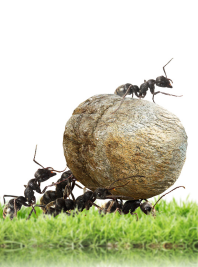Giving teams a practical and holistic framework for recalibrating in times of disruption
In this session we equip attendees with practical toolkits for personal and professional application by drawing on foundational psychological theories in resilience studies and applying these through the lens of the Circle of Courage.
Content:
We set the scene on why stress is so prevalent, and what causes chronic stress and help attendees understand the physical, psychological and professional impact of ongoing unmanaged stress levels.

The session is broken down into the following 3 areas:
1. Dealing with constant ambiguity
We help delegates understand why change and transitions are so emotionally taxing.
2. The impact of stress
- How it changes your internal dialogue
- Getting ‘hooked’ in a self-sabotage spiral
- How your brain operates differently under stress
3. Using the Circle of Courage as a framework
We then use the Circle of Courage as a framework for developing long-term sustainable resilience strategies for yourself and your team:
Bolstering what buffers us – Belonging & Mastery: stress and burn out erode our capacity to connect and feel connected with others, negative self-talk sabotages our relationships and how we perceive ourselves in context with others. This has a direct impact on resilience and developing robust teams. It also sabotages motivation. Understanding Grit (Angela Duckworth) and Growth Mindset (Carol Dweck), 2 foundational frameworks for developing internal resilience in ourselves and others.
Developing ourselves for the sake of others – Independence and Generosity: the impotence of finding spaces of autonomy. Knowing how to develop and hold boundaries. The importance of trust in building reliable relationships. What erodes trust in others and how to begin rebuilding. Understanding the four types of people: How to spot ‘takers’ in your environment and what to do with them.
The Four Key Areas and a Basic Explanation of Each Are:
- Belonging: How do people connect and fit in with others? To whom/what do people feel a sense of attachment?
- Mastery: What are people good at? What are their skills and how can they develop them further?
- Independence: Do people feel like they have agency and autonomy, if so, where?
- Generosity: How can people be generous to others? Who are those in our circle of influence whom we can assist? What is our broader social obligation?
Format
Engagement style: Informative, interactive, reflective and applied.
Capacity for small break out groups in the session (if delivered online).
Session can be reduced in content to cater for shorter durations.
Preferable delivery time 2.5 – 3 hours.
